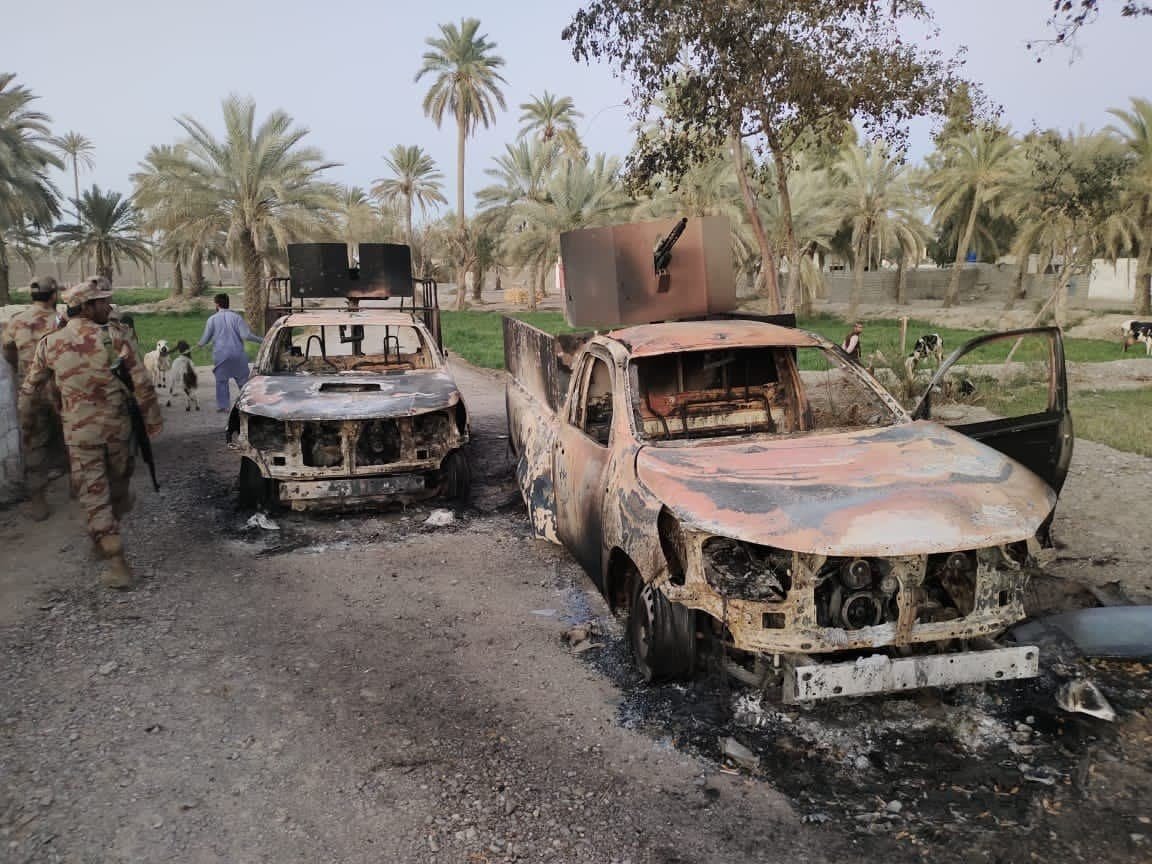Pakistan is rattled as India and Afghanistan signed MOU on Tuesday 9-February 2021 to build Shahtoot Dam in Kabul to provide drinking water facility in the Afghan capital.

In a virtual summit, external affairs minister S Jaishankar and his Afghan counterpart Mohammed Haneef Atmar signed the MoU in the presence of Prime Minister Narendra Modi and Afghanistan President Ashraf Ghani.
While signing the agreement, President Ghani thanked India and PM Modi for the gift of water. Ghani thanked India for being “a true partner in development”.
President Ashraf Ghani said “India’s development assistance was iconically marked on the Afghan landscape” in his remarks at a ceremony during which India and Afghanistan signed a pact for the construction of the nearly $ 300 million Shahtoot Dam on a tributary of the Kabul river.
Speaking at the virtual summit, Ghani said, “With Shahtoot reservoir, we will be able to implement our vision of restoring natural beauty that captivated the imagination of Babur. I thank India and Prime Minister Modi for offering this gift of water, in addition to the gift of vaccines.”
“This is the moment for regional consensus and international consensus. For a guarantee of a stable and prosperous Afghanistan. We must ask the world and all stakeholders to respect the rules of sovereignty and international relations. Stop giving sanctuaries and stop interfering in the affairs of their neighbours,” he said.
“I want to thank you… for your principled support for a … sovereign, democratic and united Afghanistan,” Ghani said adding that “sovereignty means we must have the right to form our own partnerships.” His statement can be taken as indirectly slamming Pakistan which views Afghanistan’s friendship with India as detrimental to itself. Pakistan has been accused by International community of wanting to install a pliant government in Afghanistan sensitive to its interests in case of hostilities with India. That is the reason Pakistan has sponsored and supported Taliban Terrorists to disrupt the peace and development in Afghanistan for years.
The Afghan President lauded India for giving attention to Afghanistan and giving a “gift of life to Kabul and the people of Afghanistan symbolise the value of decency, democracy, humanity, mutual interest, mutual respect, mutual trust and our interdependent world”.
The Shahtoot dam is to be constructed on the Kabul river basin, one of the five river basins of Afghanistan. Along with the Shahtoot dam, India has pledged to commit $80 million for various projects in the country. Around 150 projects have already been announced by India in the conflict-ridden country.
Shahtoot dam will provide clean drinking water to two million citizens of Kabul and will also be used for irrigation.
Earlier India had helped Afghanistan in the construction of Salma Dam in western Herat province of Afghanistan, which is known as Afghan-India Friendship Dam.

During the summit, Ashraf Ghani also thanked Prime Minister Modi for the 5,00,000 doses of Covid-19 vaccine given by India.
“Your decision to provide us with 5,00,000 doses of the vaccine at this critical time when Indians themselves are looking for every single vaccine could not be a greater gift … These will be administered to our frontline health workers and our heroic security forces and vulnerable people. We cherish this act of exceptional generosity”, he said.
Expressing concerns over the rising violence in Afghanistan, PM Modi termed targeting of the civilians, journalists and workers by the terrorists a “cowardice act” and asserted that both India and Afghanistan want to see the region free of terrorism.
“A sovereign and united Afghanistan is essential to South Asia’s prosperity, connectivity, and stability. Peace is the central desire of Afghan people”, said Ghani.
“With Shahtoot Dam, Kabul’s snow and rain will be harnessed to quench the thirst of two million citizens” of Kabul, Ghani said adding that the project would also help in restoring the green cover in the Afghan capital city with a total population of six million.
When built, the Shahtoot dam is expected to have a storage capacity of 147 million cubic metres of water. It is designed to meet the drinking water requirements of roughly 2 million of Kabul’s approximately 6 million residents and irrigate about 400 hectares of agricultural land in Chahar Asiab and Khairabad districts in Kabul province. At the 2020 Afghanistan Conference, Indian foreign minister Jaishankar had made it clear that India will construct the dam as he announced more than 100 projects worth $80 million that India would undertake in Afghanistan.

Since 2001, when US-led forces ousted the Taliban from Kabul, India has extended $3 billion in aid and for the reconstruction of Afghanistan. The projects undertaken so far include the construction of the Afghan parliament and underscore India’s support to the Afghan government headed by Ghani. The Indian funding of projects also underlines New Delhi’s intentions to remain involved in development work despite the possibility of the Taliban returning to Kabul following a power-sharing arrangement.
Pakistan Rattled
The Shahtoot dam is to be built on the Maidan river tributary of Kabul river. The project has been in the works for several years even as Pakistan has expressed concern that it would reduce water flow into the country. Despite efforts of international organizations in the past, both countries have failed to reach an agreement over the shared waters. Currently, they are following a unilateral water strategy.
On the Pakistan side, Kabul River provides water to 243 MW hydropower dam in Warsak built in 1960 and generation voltage is 11KV. In summer season the dam adds about 210 MW electricity per hour to the national grid but in winter due to shortage of water the electricity production is reduced to about 40 MW per hour. The river has sufficient quantity of water for irrigation.
Related Article Bhasha Dam in Occupied Gilgit-Baltistan: How will Bankrupt Pakistan Payback China?
“The Warsak Dam has silted up and has no capacity for water storage,” says Zahoor Muhammad, Executive Engineer at Hydrology section of KP Irrigation department. The dam can be used only for the production of electricity and has lost the capability to reserve water even for drinking and irrigation.”
He went on to say that in case of water shortage, Khyber Pakhtunkhwa (KP) will suffer more as compared to other provinces of the country, as apart from Tarbela Dam, KP does not have any other water reservoir.
According to the Irrigation Department, two canal systems, including Warsak Canal System (WCS) and Kabul River Canal System (KRCS) originating from Kabul River irrigate fertile land of Peshawar district.
Data obtained from the KP Irrigation department shows that WCS irrigates 107,414 acres of the total land of the district, while KRCS irrigates 84,270 acres. The data also reveals that in Rabi season of 2015-16 about 49,154 acres were cultivated via WCS while in the same season of 2017-18 the cultivable land was reduced to 46,050 acres.
Related Article Punjab Blocks Sindh’s Water, Sindh Blocks Ports for Punjab: Sindhudesh Freedom Fighters
The Kabul River also plays a vital role in the field of agriculture of KP’s other central districts, including Charsadda and Nowshehra. Most of the population of these districts depends on agriculture and use water from Kabul River for irrigation and cultivation.
The main tributaries of the Kabul River are Logar, Panjshir, Kunar and Alingar while, in Pakistan, Bara and Swat rivers join it at various points in KP.
Pakistan is already facing issues with India due to the increasing number of Indian projects on western rivers. Though water may be critical for the recovery of Afghanistan’s agriculture based economy, the projects on Kabul River may have serious implications on downstream irrigation and initiatives, the ecology and bilateral relations between, Pakistan and Afghanistan. In view of its historically stressed relations with India, any development project with Indian ‘signature’ in Afghanistan is perceived in Pakistan as a security threat and mobilization of the Indian sphere of strategic influence.
According to the International Water Law, Afghanistan has the right to build dams for water storage and hydroelectricity production on Kabul River.
Follow us at:-
Twitter Handle: @newscomworld
Telegram Handle : @NewsComWorldCom
Instagram Handle: @newscomworld
Parler Handle: @NewsComWorld
Gab Handle : @NewsComWorld
Tooter Handle: @NewsComWorld
Subscribe our : YouTube Channel https://www.youtube.com/channel/UCnKJQ3gFsRVWpvdjnntQoAA
Like our Facebook Page https://www.facebook.com/NewsComWorld
2,807 total views








